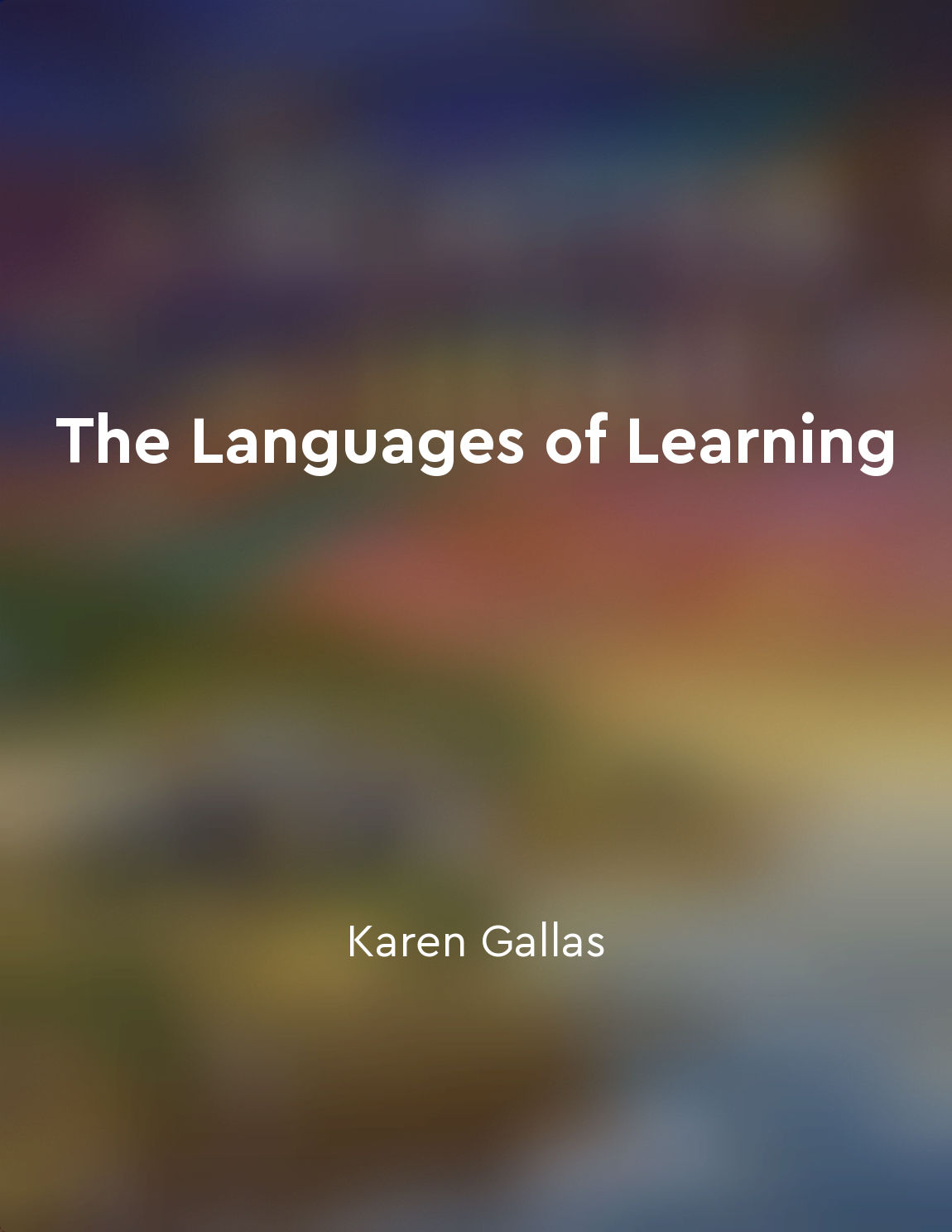Teachers must nurture and support children's languages of learning to promote their cognitive development from "summary" of The Languages of Learning by Karen Gallas
The foundation of cognitive development in children lies in the nurturing and support of their languages of learning by teachers. By recognizing and valuing the diverse ways in which children express themselves, educators can create a supportive environment that fosters cognitive growth. Children's languages of learning encompass a wide range of modes of expression, including verbal, nonverbal, and symbolic forms. These languages are not limited to spoken words, but also include gestures, drawings, and play. By encouraging children to use these diverse languages, teachers can tap into their unique ways of thinking and understanding the world. When teachers validate and respond to children's languages of learning, they demonstrate respect for their individual perspectives and experiences. This validation helps children feel seen and heard, which in turn boosts their self-esteem and confidence. When children feel valued for who they are, they are more likely to engage actively in learning and exploration. Supporting children's languages of learning also involves creating opportunities for them to communicate and interact with others. Through collaborative activities and group discussions, children can learn from each other and expand their understanding of different perspectives. This social interaction not only enhances their cognitive development but also fosters important social-emotional skills such as empathy and cooperation. By integrating children's languages of learning into the curriculum, teachers can make learning more meaningful and relevant to their students. When children are able to express themselves in ways that are personally meaningful, they are more likely to be motivated and engaged in their learning. This intrinsic motivation drives cognitive development and helps children build a strong foundation for lifelong learning.- Teachers play a crucial role in promoting children's cognitive development by nurturing and supporting their languages of learning. By recognizing the diverse ways in which children express themselves and creating a supportive environment that values their unique perspectives, educators can help children thrive academically and socially. Through this holistic approach to education, teachers can empower children to reach their full potential and become lifelong learners.
Similar Posts
Language shapes human consciousness and vice versa
M. M. Bakhtin explores the intricate relationship between language and human consciousness, emphasizing the mutual influence th...
Unveil the secrets to retaining new words in your memory
To improve your vocabulary, it is essential to retain new words in your memory. Simply reading a dictionary or memorizing word ...
Engages students effectively
The concept of engaging students effectively is pivotal in the realm of education. It involves employing strategies that captur...
Understanding language requires grasping its various uses
To understand language, we must look beyond mere definitions and rules. Language is not a fixed code with one meaning for each ...
Writing books and articles
I have always had a great passion for writing. From a young age, I found joy in expressing my thoughts and ideas through words....
Reading ability influenced by background knowledge
The information children bring to the task of reading is more important for the comprehension of written language than the form...

Practice empathy and understanding
When we talk with our kids, it's important to show them empathy and understanding. This means putting ourselves in their shoes,...
Reading comprehension strategies
Reading comprehension strategies are essential tools for language learners to understand and interpret texts effectively. These...
Future directions in Japanese language education
The field of Japanese language education is constantly evolving, with new trends and approaches shaping the future of teaching ...


